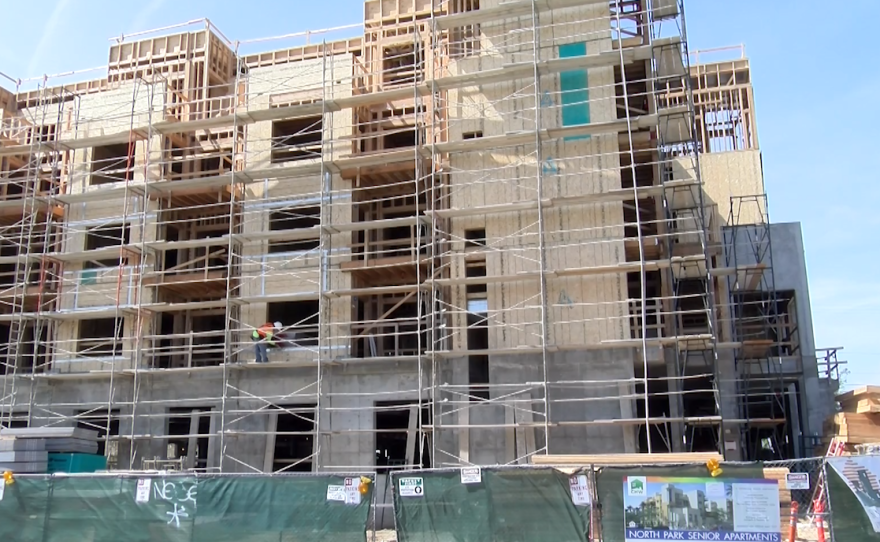The San Diego City Council moved a step closer Tuesday to placing a $900 million bond measure on the November ballot in hopes of dramatically expanding affordable housing in the city to address homelessness.
On a 6-3 vote, the council approved a resolution clearing the way for its staff to craft a ballot measure and bring it back to the council for another vote in June. If approved again by two-thirds of the council, the bond issue would go before voters in November. It would also require approval from two-thirds of voters.
Councilmembers Mark Kersey, Chris Cate and Scott Sherman cast the dissenting votes.
The idea of the housing bond was originally proposed two years ago by the San Diego Housing Federation. The bond is expected to fund roughly 7,500 affordable housing units. The bonds would be paid through an increase in property taxes of 19 cents per $1,000 of assessed valuation, or roughly $18 a year for the average homeowner.
RELATED: Second Time A Charm For New San Diego Affordable Housing Policy
"I live in a nice house in Bay Ho and this will cost me less than $18 a year, that's $9 every six months," Councilwoman Jennifer Campbell said. "I would pay $100 every six months. That's affordable."
She added, "We have to make up for past sins, and we're going to do it."
Opponents of the proposal said the cost is too high and the government is too incompetent to effectively handle the crisis.
"Government caused this crisis," Kersey said. "The government made it too expensive to build."
Kersey, Cate and Sherman contended that raising the cost of living for their constituents was fundamentally unfair.
"We have low-income housing and we have luxury housing," Sherman said. "And nothing in-between. We should be incentivizing developers. We have the solution, it's so easy to do."
In last year's homeless point-in-time count, San Diego identified 5,082 people as homeless, including 572 chronically homeless. Of those, more than half were unsheltered, a significantly higher proportion than the national average of 24.6%, according to the National Alliance to End Homelessness. Of those numbers, 13% are veterans, 2% are families and 11% are youths.
Kathleen Ferrier, policy director for Council District 3, said San Diego "lags behind our peer cities" in providing affordable housing.
RELATED: Proposed Update To City’s Affordable Housing Policy Would Change Equation For Developers
The 2018 Housing Inventory Annual Report found San Diego had 0.38 housing units per person, compared to Denver and Seattle, which came in at 0.45 and 0.48 units per person, respectively.
Stephen Russell, executive director of the San Diego Housing Federation, said the city needs the bond measure to address the humanitarian crisis, but also because it was losing money by simply not acting. He said the $900 million in municipal bonds would be paid with property tax revenue and a significant portion could be matched with state funds -- a fact which has not escaped other California cities.
"San Francisco and Los Angeles are literally eating our lunch," he said before imploring the council to vote to pass the resolution. "Give citizens of San Diego a chance. ... We need solutions to respond to the scale of the problem."
Councilwoman Vivian Moreno said passing a bond with local funding would be the first step in securing state funding and housing credits, and without the bond, San Diego is at a significant disadvantage compared to other large Californian cities.
Russell and Ferrier showed initial polling numbers indicating 71% of likely voters would support the ballot measure. The same poll showed that 83% of respondents considered homelessness to be a top issue in their community.
Jim Vargas, president/CEO of Father Joe's Villages, praised the council for advancing the issue.
"The lack of affordable housing is the largest crisis facing our city and is a key barrier to ending homelessness," Vargas said.






